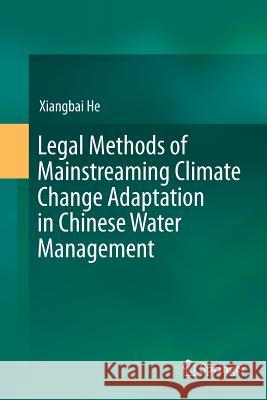Legal Methods of Mainstreaming Climate Change Adaptation in Chinese Water Management » książka
topmenu
Legal Methods of Mainstreaming Climate Change Adaptation in Chinese Water Management
ISBN-13: 9789811091537 / Angielski / Miękka / 2018 / 268 str.
Kategorie:
Kategorie BISAC:
Wydawca:
Springer
Język:
Angielski
ISBN-13:
9789811091537
Rok wydania:
2018
Wydanie:
Softcover Repri
Ilość stron:
268
Waga:
0.40 kg
Wymiary:
23.39 x 15.6 x 1.52
Oprawa:
Miękka
Wolumenów:
01
Dodatkowe informacje:
Wydanie ilustrowane











